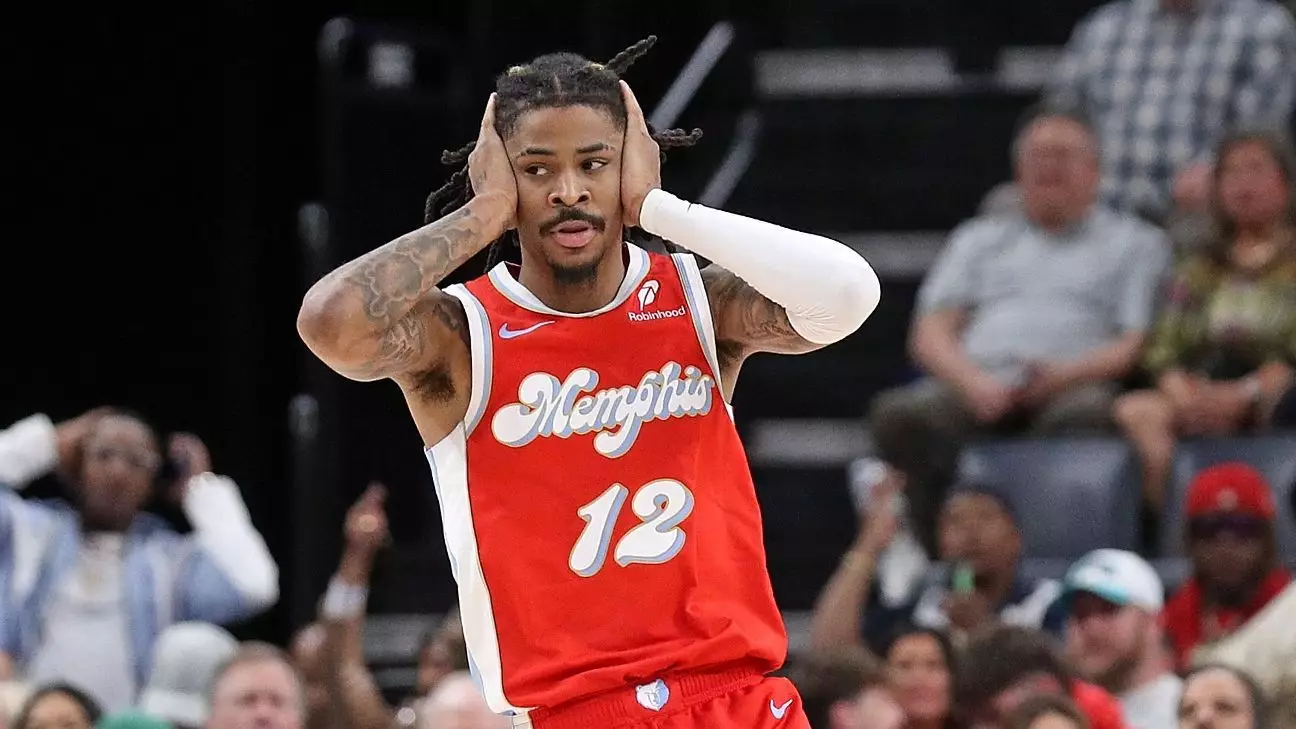In the world of professional sports, athletes are scrutinized not only for their performances but also for their conduct both on and off the field. Memphis Grizzlies’ star player Ja Morant has found himself at the center of this scrutiny. Recently fined $75,000 for his controversial imaginary gun gesture after hitting a three-pointer, Morant is now pivoting to a different form of celebration. In a halftime display of creativity, he was seen mimicking the act of pulling the pin on an imaginary grenade and tossing it into the stands during a game against the Minnesota Timberwolves. This shift in celebration style represents more than just a creative outlet; it highlights the broader challenges athletes face in aligning their personal expressions with public expectations and league regulations.
A Pattern of Recklessness
Morant’s journey is marred by a troubling pattern of behavior, particularly concerning the depiction of firearms. Just this season, the player has faced significant consequences stemming from similar actions, including a suspension of 25 games for waving a gun in a car and an earlier eight-game suspension linked to an incident at a Denver nightclub. The recent fine following his imaginary gun gesture was hardly a surprise given the accumulation of warnings and negative publicity surrounding his actions. For an athlete of his caliber, these incidents reflect not only personal judgment lapses but also a concerning reality about societal influences surrounding gun culture.
Support from Peers and Critics Alike
Interestingly, Morant’s teammates, like Vince Williams Jr., have expressed understanding and support for his new grenade celebration. Williams remarked, “It’s good for him. He gets to save his money,” acknowledging the need for Morant to adapt his antics in light of the financial penalties he’s incurred. This perspective sheds light on an important aspect of sports culture—while players thrive on self-expression, they must also navigate the economic ramifications of their choices. Yet, Morant’s seemingly humorous adaptation did not go without its critics. Commentary from the TNT studio crew made it clear that the grenade celebration, although a step away from direct violence, still dances around the edges of poor taste in a sensitive societal context.
The Broader Implications of Self-Expression
Morant’s actions illustrate a pivotal moment in athlete self-expression within the highly scrutinized realm of professional sports. While the desire to celebrate personal achievements is universal, Morant’s approach raises difficult questions about the boundaries between humor, social responsibility, and individual expression. Celebrations, even those meant to be light-hearted, can inadvertently reinforce negative stereotypes or provoke backlash. As Morant seeks to redefine how he celebrates his successes, he also invites dialogue on athlete accountability, societal expectations, and the potential impact of their public personas.
In the end, Morant’s ongoing journey—marked by both talent and controversy—offers a unique lens through which to examine the intersection of personal behavior, professional standing, and societal implications. As he continues to adapt his celebrations, the hopes for a more responsible and thoughtful future in sports are paramount.


Leave a Reply